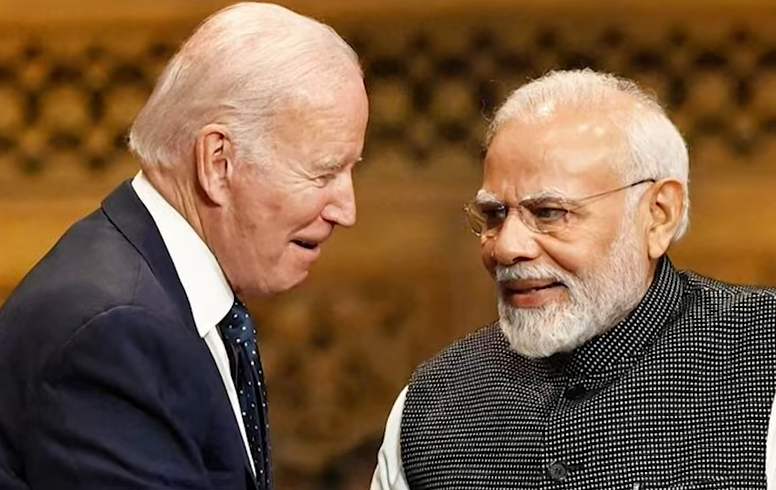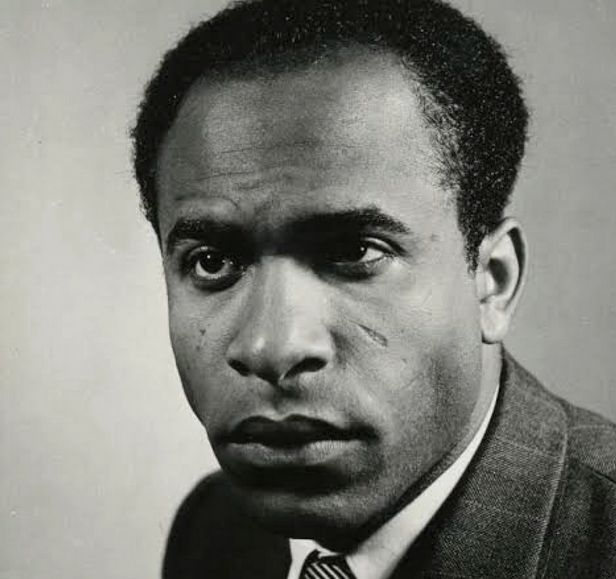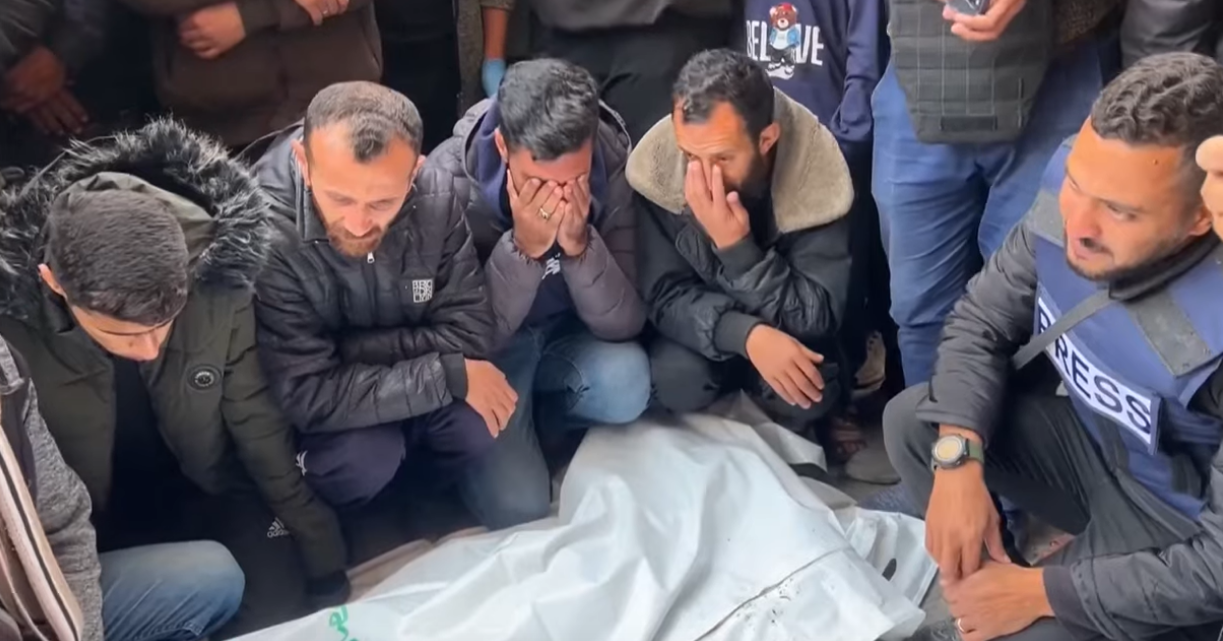Photos: Wikimedia Commons\YouTube Screenshots
The United States and Indian governments must address the grave human rights issues in both countries during Prime Minister Modi’s meeting with President Biden in Washington DC, said Amnesty International ahead of the state visit this week.
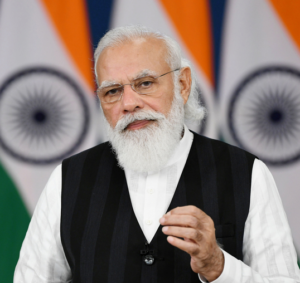
“Prime Minister Modi has presided over a period of rapid deterioration of human rights protections in India, including increasing violence against religious minorities, shrinking civil society space, and the criminalization of dissent. Meanwhile, President Biden’s time in office has been concurrent to a devastating period of backsliding on reproductive rights and increases in vitriolic anti-LGBTQI+ attacks at the state level, all in a political climate informed by structural racism and socio-economic injustice,” said Amanda Klasing, national director of government relations and advocacy at Amnesty International USA.
“These human rights concerns are not fringe issues. They are fundamental in determining how a government operates, who it serves, and who it leaves out. A crucial test of the India-US alliance is whether these two leaders can engage in meaningful discussions about these and other concerning human rights failures of their governments.”
During his first official state visit to the United States, the Indian Prime Minister has been invited to a state dinner along with an address to a Joint Session of the US Congress the week of June 22.
“While the red carpet has been rolled out for Prime Minister Modi, people in India continue to experience grave human rights abuses. India and the US are important partners and allies in various world forums, including the G20 and Quad. As leaders of countries seeking to advance or retain global leadership, Biden and Modi must hold each other to account for their human rights commitments, rather than sweep human rights issues in their respective countries under the rug,” said Aakar Patel, chair of Board at Amnesty International India.
Amnesty International has documented how the Indian government’s criminalization of freedom of expression and peaceful assembly has placed dangerous constraints on civil society. Human rights defenders, journalists, lawyers, political opponents, peaceful protesters, academics and students all face arbitrary arrests and detention, unjust prosecutions and other forms of harassment and intimidation.
Financial and investigative agencies of the government have been weaponized to harass, silence, and criminalize independent critical voices, including media organizations such as the BBC and prominent non-governmental organizations including Greenpeace India, Oxfam India, Independent and Public-Spirited Media Foundation (IPSMF), Centre for Policy Research, Amnesty International India and several others
“The Indian Government relies on an ever-growing toolbox of tactics to repress dissent, now targeting those online, censoring activists and journalists, placing them under surveillance. President Biden must call on Prime Minister Modi to end his government’s abuse of laws to target civil society and free speech,” said Aakar Patel. “He should also voice concern about the BJP’s abuse of laws and policies to systematically discriminate against religious minorities.”
Driven by discriminatory nationalist Hindutva ideology, many state governments in India have passed laws to criminalize consensual inter-faith marriages and undertaken punitive demolitions targeting Muslim-owned properties. Victims of such demolitions continue to struggle for compensation and other remedies.
This targeting of religious minorities in India has been widely documented, including by the US State Department. Earlier this year, the US Commission on International Religious Freedom (USCIRF) recommended for the fourth year in a row that India be added to a list of countries perpetuating systemic and egregious violations of the right to freedom of religion, saying that conditions in the country for religious minorities “continued to worsen” throughout 2022. The US State Department 2022 Report on International Religious Freedom reported ‘violence by government authorities against members of religious minorities’.
“President Biden cannot ignore the evidence provided by his own State Department,” said Amanda Klasing. “He must clearly state that the growing intolerance and violence is a great concern of its administration. He should encourage Prime Minister Modi to convey to BJP leaders the urgent need to end vitriolic language and to ensure crimes against religious groups are investigated and prosecuted.”
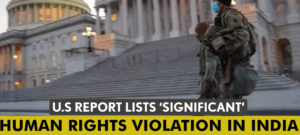
Prime Minister Modi’s visit takes place during a challenging climate for human rights in the US as well. Under President Biden, the US has seen a devastating backslide on access to abortion. Following the June 2022 US Supreme Court decision overturning the constitutional guarantee to access abortion, at least 14 states have implemented total or near-total bans on abortion, with dozens more advancing restrictive legislation. The power to fully legalize abortion throughout the country lies with the US Congress however the President has critical authority to support abortion access in the meantime. President Biden has taken some executive action but has the power to do more, including to declare a national health emergency to protect abortion access in the United States.
In view of India’s Supreme Court ruling in 2022 that extend the right to access abortion to all women irrespective of marital status, and the detrimental impact the US Supreme Court’s ruling has had on access to health not just in the United States but also globally, Amnesty International urges Prime Minister Modi to press President Biden to ensure access to abortion to the fullest extent of his authority and to encourage members of Congress, when he meets with them, to pass legislation federally protecting access to abortion.
The US has failed to ratify key human rights treaties protecting the rights of children, advancing gender equality, and ensuring access to healthcare. When Prime Minister Modi meets with US Congressional offices, he should further urge Senate leadership to move towards ratification of conventions the US has already signed, such as the Convention on the Elimination of All Forms of Discrimination against Women and the Convention of the Rights of the Child.
“There are increased threats to sexual and reproductive health and rights and vitriolic attacks on people needing access to a range of healthcare in the US,” Amanda Klasing said. “As President Biden raises human rights threats in India, he must also be prepared to address the threats to human rights here in the US and look to examples from other countries, including India, where constitutional courts have extended human rights protections and legislatures have ratified key human rights treaties.”
“Modi and Biden have the opportunity to take a principled approach to supporting each other in advancing more rights-respecting policies at home,” said Aakar Patel. “With the world watching, their silence will be felt by the people in India and the US whose rights are most at risk of abuse.”
